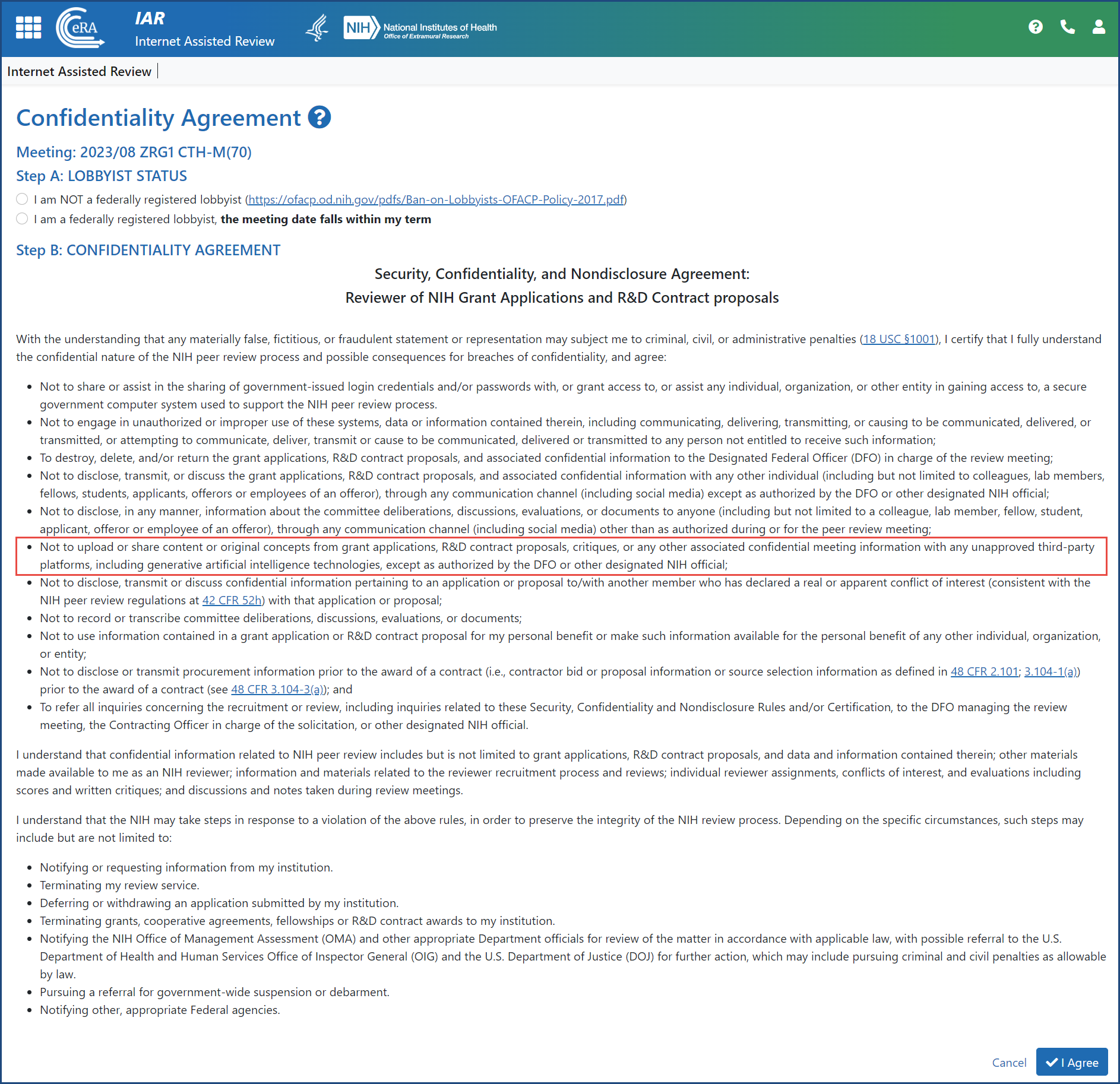Reviewers will be presented with a revised Confidentiality Statement in the Internet Assisted Review (IAR) module following a release tomorrow, Tuesday, August 8. The Confidentiality Statement will include a new sentence emphasizing that reviewers should not use generative artificial technologies for NIH peer review except as authorized by the scientific review officer or other designated NIH official (as outlined in NIH Guide Notice NOT-OD-23-149). Also see Open Mike blog.
The Confidentiality Statement will include this new language, whereby reviewers must agree:
- Not to upload or share content or original concepts from grant applications, R&D Contract proposals, critiques, or any other associated confidential meeting information with any unapproved third-party platforms, including generative artificial intelligence technologies, except as authorized by the DFO or other designated NIH official.
The revised statement is limited only to NIH and Other Transaction (OT) review meetings.
There are no changes to the process by which a reviewer certifies the confidentiality statement or to how reviewers indicate whether or not they are a federally registered lobbyist — the two steps reviewers are required to take before gaining access to a review meeting.
- To refer all inquiries concerning the recruitment or review, including inquiries related to these Security, Confidentiality and Nondisclosure Rules and/or Certification, to the DFO managing the review meeting, the Contracting Officer in charge of the solicitation, or other designated NIH official.
- That the NIH may take steps in response to a violation:
Notifying the NIH Office of Management Assessment (OMA) and other appropriate Department officials for review of the matter in accordance with applicable law, with possible referral to the U.S. Department of Health and Human Services Office of Inspector General (OIG) and the U.S. Department of Justice (DOJ) for further action, which may include pursuing criminal and civil penalties as allowable by law.
Reviewers will also be required, for review meetings starting in early calendar year 2024, to take two trainings on bias and review integrity (once every 3 years) before being given access to assigned applications in IAR. See Open Mike blog and NIH Guide Notice NOT-OD-23-156. More details to come later.
Screenshot of Revised Confidentiality Statement





 eRA Intranet
eRA Intranet